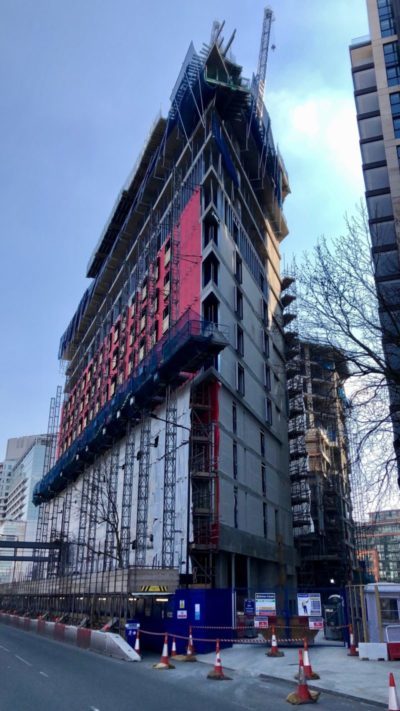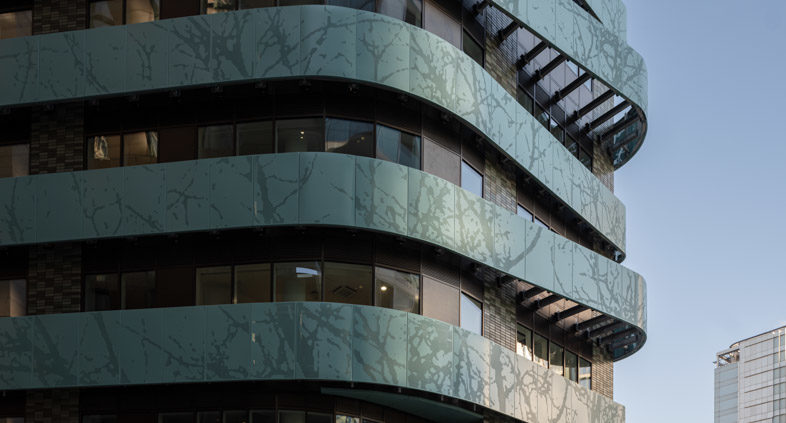London has a lot of blurred boundaries; it is itself unconfined. While its boroughs may have administrative limits, in spirit it’s boundless, a fluid place, a place to do things differently. In this project, crossover residential-hotel brand Aparthotel was both tenant and in the developer consortium. And TPS found itself mixing project management with development management into a hybrid consulting service that bridged a gap between the client, sources of funding, and the project team.
It is a frontier project, demanding a more flexible approach—a determination to do what’s needed, rather than what one might be used to doing
One thing we’re certainly used to, there are always plenty of reasonably priced hotel rooms either side of the dates you wish to stay, in any given location… Except for London, where there never seem to be any at all. Putting a figure on the shortage, the city’s target is to provide 40,000 more rooms by 2036. The development at North Wharf Gardens is primarily a hotel project forming the final element in a wider regeneration of land surrounding Paddington basin, the end of an arm of the Grand Union Canal.
The client, Concierge3, is formed as a consortium of interests including established developer Pickstock Group, BSW Land & Property, and StayCity, owners of the ApartHotel brand of residential/hotel properties. Although the group’s talent is broad, it did not have deep experience as a developer of projects of this scale, which at £85million represented a substantial and complex project — the largest hotel construction project in London at the time.
TPS was invited to help at an early stage—before the group had even acquired the site—attending board meetings that began to set out their plans for the development. The site as bought already had a two storey basement, with planning for a different hotel project, so new planning permissions would be required. On top of that, the basement would also need to be re-engineered to provide foundations capable of supporting the group’s new designs.
In addition to seeking planning, TPS assisted the group in successfully preparing their plans for the investment audience including the comprehensive due diligence process required by M&G, the principle investor in the scheme, and all the leasing and the associated legal frameworks.
When it came to construction, the matter of the revised foundations became a central issue, as new warranties would be required to satisfy the investors and the future tenants. TPS handled the contractual and legal side of the warranties acting as the consortium’s agent with the lawyers.

Development management and project management are inseparable in the London market
Having originally won the appointment in a project management role, TPS found itself in a much widened consultancy role for the consortium. Such extensions to the scope of the project for TPS are increasingly common in projects. While it may be a reflection of the teams range of skills and experience, it is also symptomatic of trends in London development projects.
There is less difference between development management and project management in London certainly, but also less desire to complete designs ahead of negotiating contracts with construction partners. The impact on projects is that of potentially greater and different risk to tendering companies, but ultimately a faster route to a delivery.

Heaven & Earth Movers








